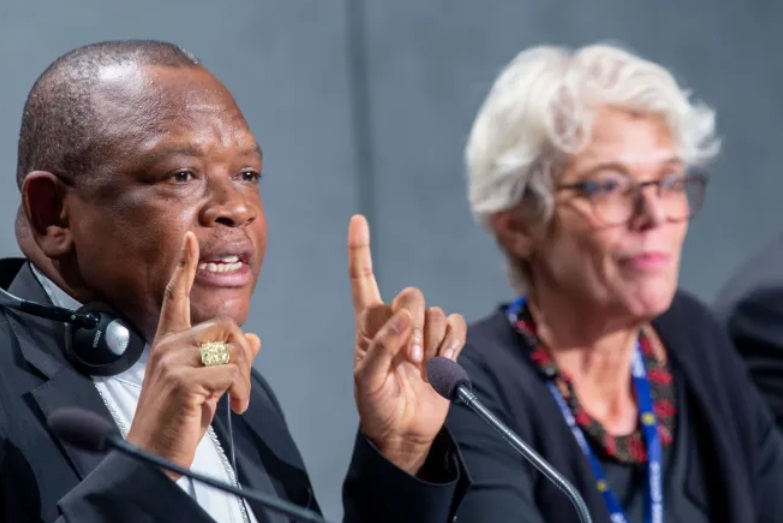The cardinal pointed to the “method of discernment” animating the synodal process and the authority he said participants have by virtue of their baptism. For the first time ever at a Synod of Bishops, 27% of the voting members are non-bishops, and discussion will be guided by a “conversations in the spirit” method of speaking, listening, and discerning.
“It is by virtue of baptism that we have the same responsibility before the Church, and I think all those present have the authority to speak on behalf of the Church,” the cardinal said.
Asked by the National Catholic Register’s Edward Pentin if he would accept a Synod outcome that expressed support for the blessing of same-sex unions as the will of God, Besungu demurred, explaining that he did not want to express his own opinion on LGBTQ issues because “the Lord himself through collective discernment will tell us” what direction the Church needs to take.
“No one has come here with his or her own agenda,” he said. “We are all brothers and sisters listening to the will of God for his Church.”
The cardinal’s comments came after five cardinals went public on Oct. 2 with questions they had submitted to Pope Francis, one of which addressed the authority of the Synod. Later that same day, the Vatican published the pope’s responses to the cardinal’s initial questions.
In response to a question about whether “synodality can be the supreme regulative criterion of the permanent government of the Church” without conflicting with the Church’s hierarchical nature, Pope Francis said that the Church’s status as a “mystery of missionary communion” “necessarily implies real participation: that not only the hierarchy but all the people of God in different ways and at different levels can make their voice heard and feel part of the Church’s journey.”








Total Comments:0